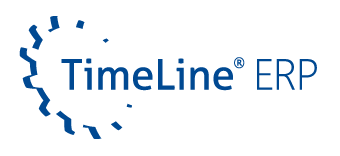Success factors for your ERP goals
A new ERP system can have many positive effects on your company. It influences nearly every business process and internal workflow. Used correctly, it makes daily tasks easier and better, provides structure and improves communication. Your company becomes more transparent and therefore more future-proof. The last article described step-by-step how to introduce an ERP system into your company – from planning to selection and implementation. In this article, you will learn how you can organize ERP management to ensure that your investment bears fruit. There are some success factors – and also mistakes that you should avoid, when you want to reach your ERP goals.
Success factors are defined as “factors and conditions that determine the success or failure of entrepreneurial activity”. Critical success factors are factors “of particularly great importance” (Dömer 1998). If these factors are right, your ERP project will also be successful. There is no doubt that there are countless factors that influence the success or failure of a project in your organization.

Are company-wide framework conditions in place?
How do you organize ERP management? First of all, it is important to define the framework conditions for your project in advance – these include objectives, resources and costs. You should always keep an eye on these during the project. This also includes regularly documenting and communicating project progress. In addition to the selection of your project team, the distribution of roles within the team itself is also important for the project to run smoothly. Functions and tasks should be clearly distributed. The challenge here is that the project should not become purely additional work. Try to free the members of the project from their line activities as far as possible. There will probably still be times when the days in the office get longer. Small gestures of recognition can help to provide new motivation.
Change management: one of the most important success factors
Probably the most important aspect in making the new ERP solution a success is your employees. Effective change management is one of the most important success factors of every ERP goal. Even the best ERP system has no added value for a company if your employees resist it. To prevent this, you should not put the fully implemented system in front of the workforce. Get your employees on board as early as possible – that way you can quickly get them excited about the new solution. It is best to announce the upcoming changes as soon as the introduction of the new system has been decided. But what is the best way to do this?
Good ERP management: ERP goals are reached with teamwork
Announce the transformation step by step. And preferably in person, not by circular email. This will give your employees time to get used to the idea and not feel overwhelmed. The best method is to communicate your plans and concerns openly – this way you can also prevent rumors and create transparency. This includes, for example, the people involved, a timetable and also what will change in the future. If you would like to bring in an ERP manager or consultant, introduce them to your employees. A staff meeting, for example, provides a good platform. This way, all employees are present and have the same level of information. Questions can be asked and answered directly. Furthermore, you should not present the ERP implementation as a pure IT project. Otherwise, it could quickly give the impression that it is only a technical changeover.
What to do if employees reject the ERP system?
If your employees reject the new ERP system, there is rarely any malicious intent behind it. Rather, the fear of new or changed operational and organizational processes comes to the fore: processes become transparent, errors are detected more quickly and the fear of a perceived operating error increases. This fear is not entirely unfounded, as a modern ERP system maps processes automatically on the basis of correct data – which is precisely what makes it so effective. It is therefore important that you take your employees’ fears seriously and do not ignore them. Point out the advantages of the new ERP solution and the positive effects that the changeover will have on the entire company and your goals. Make it clear that this is a future-oriented project: the ERP software secures jobs and offers new opportunities to contribute to the company.
Formulate effective goals – thanks to ERP management
Once you have the workforce on your side, it’s time to formulate your ERP goals. You can only be successful if you have goals. Unclear goals and imprecise requirements are one of the most common reasons why projects fail – followed by a lack of resources and a project budget that is too small.
“Improve structures and processes”
This may be a goal, but it is not well formulated. Which structures? Which processes? How exactly are they to be improved? In what timeframe? And how do you know when the goal has been achieved? If you define such an ERP goal at the beginning of a project, there is a high probability of disappointment with the result. Especially when several parties are involved, there is a lot of room for interpretation.

Make your goals SMART – with the help of ERP management
A clear formulation of objectives is therefore particularly important. The SMART method consists of five criteria. Smart goals should be:
- Specific
- Measurable
- Accepted
- Realistic
- Scheduled
What this means in detail is described below.
Specific
Specific goals are important so that everyone involved has the same idea of what the project is supposed to achieve – and there is no room for interpretation. These five questions will help you formulate them:
- What exactly do you want to achieve?
- Why is this important?
- Who is involved?
- When do you want to have a result?
- How do you plan to proceed?
Measurable
Define criteria that can be used to measure whether you have achieved the objectives. These can be concrete figures or data. This allows you to assess progress – but also to take countermeasures if you stray too far from the defined goals.
- How can the achievement of objectives be measured?
- When do I know that I have achieved the target?
Accepted
Imagine that you have to work on a goal that cannot be achieved. Make sure that your goals are challenging but feasible. Otherwise, your motivation will quickly wane.
- Is the goal motivating and accepted by everyone involved?
- Can it be achieved through the project?
Realistic
Realistic goals are closely linked to acceptance. If goals are realistic, they are generally accepted. If goals are formulated unrealistically, people tend to ignore them. It is also important here whether the achievement of the goal can be influenced.
- Do you have the necessary resources?
- Is the timeframe sufficient?
Scheduled
Clear deadlines are important for your team. Tasks without a deadline are often not implemented promptly. But not all ERP goals have to be scheduled. For example, there are financial targets that should be achieved regardless of a specific date.
- When should the target be achieved?
- Is the goal achievable within the project duration?
Once you have identified and recorded your ERP goals, you are already a big step further in your growth. Now you need to keep an eye on them and make sure you don’t stray from the path. The success of an ERP implementation does not depend on the technology – it is the people who work with the ERP system. That’s why none of the success factors mentioned revolve around the software itself.
Would you like to find out more about ERP implementation, ERP management or the entire range of TimeLine ERP functions? Send us a message using the contact form, write to [email protected] or contact our sales team on +49 212 230 35 200. We look forward to hearing from you and will be happy to advise you!







